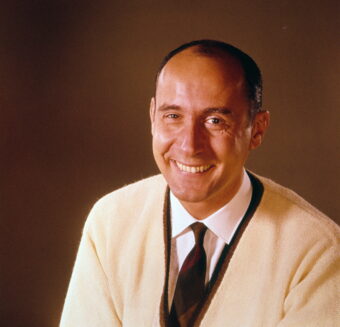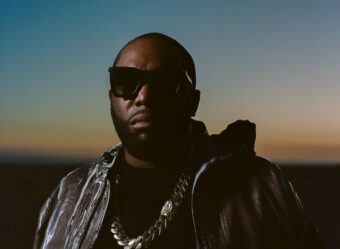If you are the kind of person who subscribes to Spin (as opposed to the kind of person who steals Spin from sleeping hobos), you’ve probably noticed that the publication always arrives a few days early: The October issue typically shows up in September. This was also the case in 1991, which means archaic, 20th century readers were reading the October ’91 issue during the most important month in Spin’s history. You see, DGC shipped 46,251 copies of Nirvana’s Nevermind to retail outlets during the weekend before its September 24 release. This event changed the very face of rock music and all the media that covered it; in fact, this column — somewhat coincidentally — marks the 46,251st time the words Kurt Cobain have been printed in Spin magazine. But no one saw Nirvana coming in the autumn of 1991, and neither did this magazine. Or it probably wouldn’t have put Metallica on the cover.
The cover image is actually a great photo of Metallica, mostly because they’re all laughing like stoned hyenas. “Ha ha ha,” Lars Ulrich seems to be saying. “We are invincible. Metal shall rule the ’90s. Our band will never need psychological counseling, and we would certainly not film it if we did. There is no way anyone will ever create a file-sharing technology that will allow people to hear our music without rendering proper payment. We’re at least as good as Rush.”
Yet, at least while promoting the self-titled “Black Album” in Spin in 1991, this was the connection Lars perceived: “More than any other band,” he told writer Bob Mack, “we are like Rush.” And by sheer coincidence, there is a review on page 102 of the album The Plague That Makes Your Booty Move by Infectious Grooves (a Suicidal Tendencies side project), and its opening line reads: “Robert Trujillo is the best bassist Suicidal Tendencies have ever had.” As we now know, Trujillo eventually became the bass player for Metallica. Perhaps Lars discovered him through this magazine. “I was just checking to see if they got my quote about Rush correct,” Ulrich (could’ve theoretically) said years later, “but I came across this remark about the best bass player in the history of Suicidal Tendencies. It seemed like something I should look into, just in case Jason Newsted ever quit the band and moved to a ranch in Montana.” I have no idea whom Suicidal Tendencies’ second-best bass player was, and the review doesn’t give any hints. I’m guessing Rudy Sarzo.
In my memory, Spin seemed great in 1991 because it was “loose” and “uncompromising.” However, much of this issue is so loose and uncompromising it’s useless. The same guy who wrote the Metallica cover story also reviewed Red Hot Chili Peppers’ Blood Sugar Sex Magik, and he admits in the first sentence that he’d never even heard the full album; he only listened to rough mixes of a few random songs while drinking warm beer at a party in Hollywood hosted by the band. Interestingly, his thoughts don’t seem any more or less accurate than every other review in the section: “What the hell,” he concludes. “Let’s give it a green light.” This was the era when Spin reviewed albums by offering driving directions.
Still, I can’t deny that the 1991 version of Spin had its phalanges on the pulse of the stuff we retrospectively pretend was popular. For instance, there’s a nice little write-up about the first Hole album (Courtney Love refers to the metal fans of Los Angeles as “idiots”) and a two-page story about the Pixies. “We’re really a fringe act no matter how you cut it,” said Frank Black. “We’re sub�Elvis Costello.” More important, there are several pages of protracted, anecdotal coverage of the first Lollapalooza tour, and it’s all pretty decent; it’s kind of like a media blog, except interesting. Did you know that Siouxsie Sioux loved Terminator 2: Judgment Day? I did not. Did you know that the brother of the original guitarist from Nine Inch Nails costarred in Terminator 2? I think I might have known that in 1991, but the information was forgotten long before O.J. terminated his ex-wife (allegedly). I’d also forgotten how one of the early “controversies” surrounding Lollapalooza was that African-Americans seemed uninterested in attending. Gibby Haynes of Butthole Surfers actually approached one of the few minorities at the San Diego show and said, “Hey, man, you are one rare black dude.”
So perhaps there is something to be said for uncompromised looseness.




